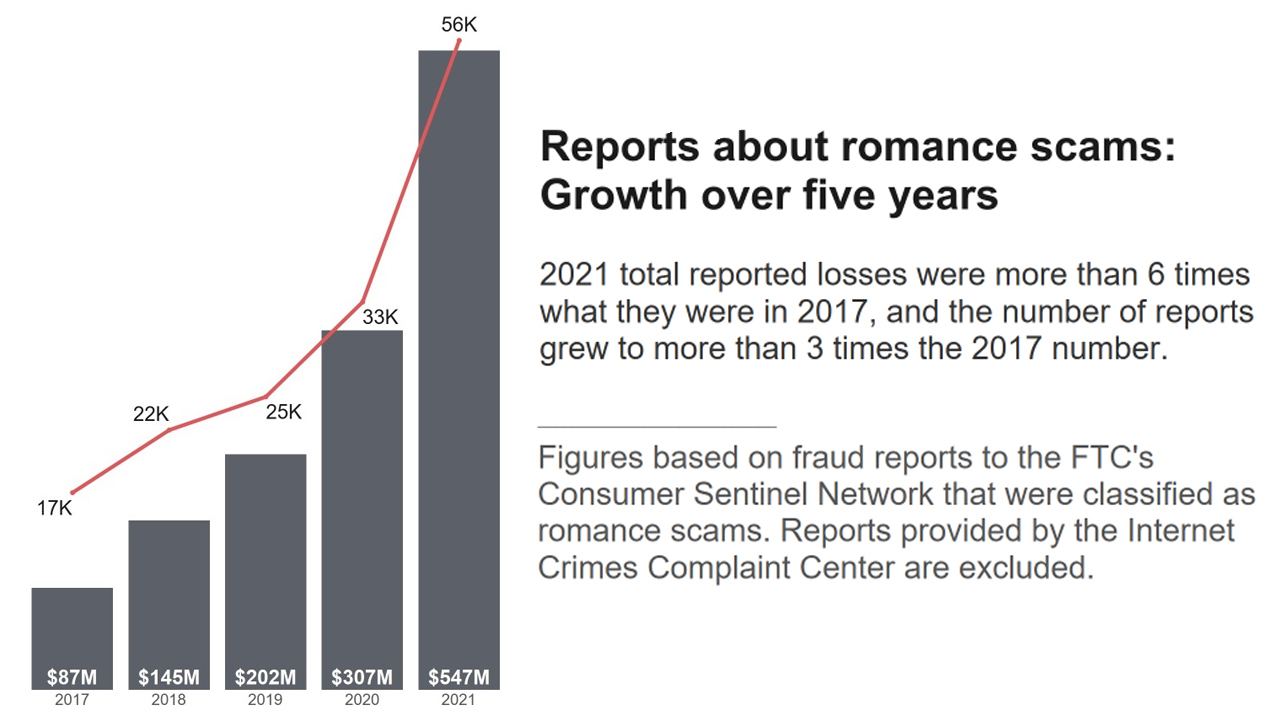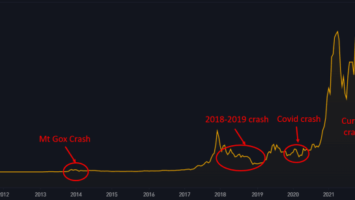
The U.S. Federal Trade Commission (FTC) has warned about romance scams using cryptocurrency. Scammers use romance as a hook to lure people into bogus investments, especially crypto, the federal agency explained. “2021 numbers are nearly five times those reported in 2020, and more than 25 times those reported in 2019,” said the FTC.
FTC Warns About Crypto Romance Scams
The U.S. Federal Trade Commission (FTC) issued a warning Thursday about crypto-related romance scams. The FTC is an independent agency of the U.S. government whose principal mission is the enforcement of civil U.S. antitrust law and the promotion of consumer protection.
“New data from the Federal Trade Commission show that more consumers than ever report falling prey to romance scammers. Consumers reported losing $547 million in 2021 alone,” the FTC wrote, adding:
A growing trend in 2021 was scammers using romance as a hook to lure people into bogus investments, especially cryptocurrency.
“Consumers who paid romance scammers with cryptocurrency reported losing $139 million in total in 2021, more than any other payment amount,” the federal agency detailed. “2021 numbers are nearly five times those reported in 2020, and more than 25 times those reported in 2019.”
In addition, the FTC noted that the median loss for consumers who reported paying a romance scammer with cryptocurrency in 2021 was nearly $9,770.

The Federal Trade Commission explained that in romance scams:
People are led to believe their new online companion is a successful investor who, before long, casually offers investment advice.
Besides cryptocurrency, another popular investment method promoted by these romance scammers involves foreign exchange (forex) trading.
However, the most common method of payment to romance scammers is not cryptocurrency. “About 28% of people who reported losing money on a romance scam in 2021 said they paid with a gift card or reload card, followed by cryptocurrency (18%),” the FTC clarified.
The federal agency has issued several warnings about scams involving cryptocurrency this year. In January, it warned about crypto scams using social media and ATMs.
What do you think about crypto romance scams? Let us know in the comments section below.
Image Credits: Shutterstock, Pixabay, Wiki Commons
Disclaimer: This article is for informational purposes only. It is not a direct offer or solicitation of an offer to buy or sell, or a recommendation or endorsement of any products, services, or companies. Bitcoin.com does not provide investment, tax, legal, or accounting advice. Neither the company nor the author is responsible, directly or indirectly, for any damage or loss caused or alleged to be caused by or in connection with the use of or reliance on any content, goods or services mentioned in this article.






















Comments (No)